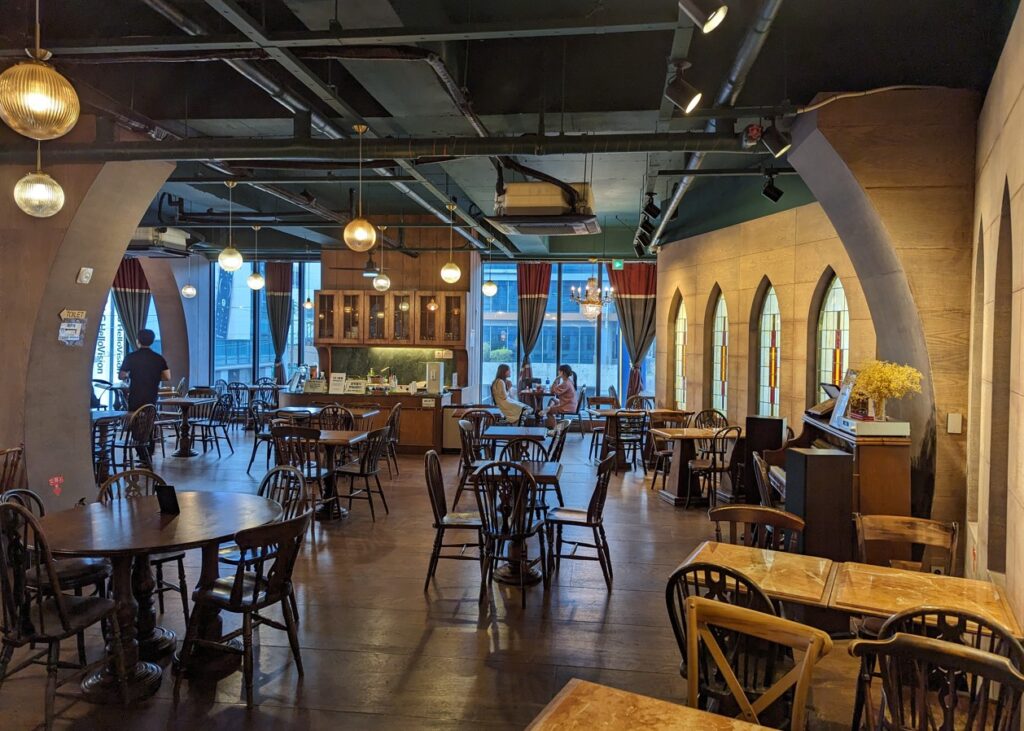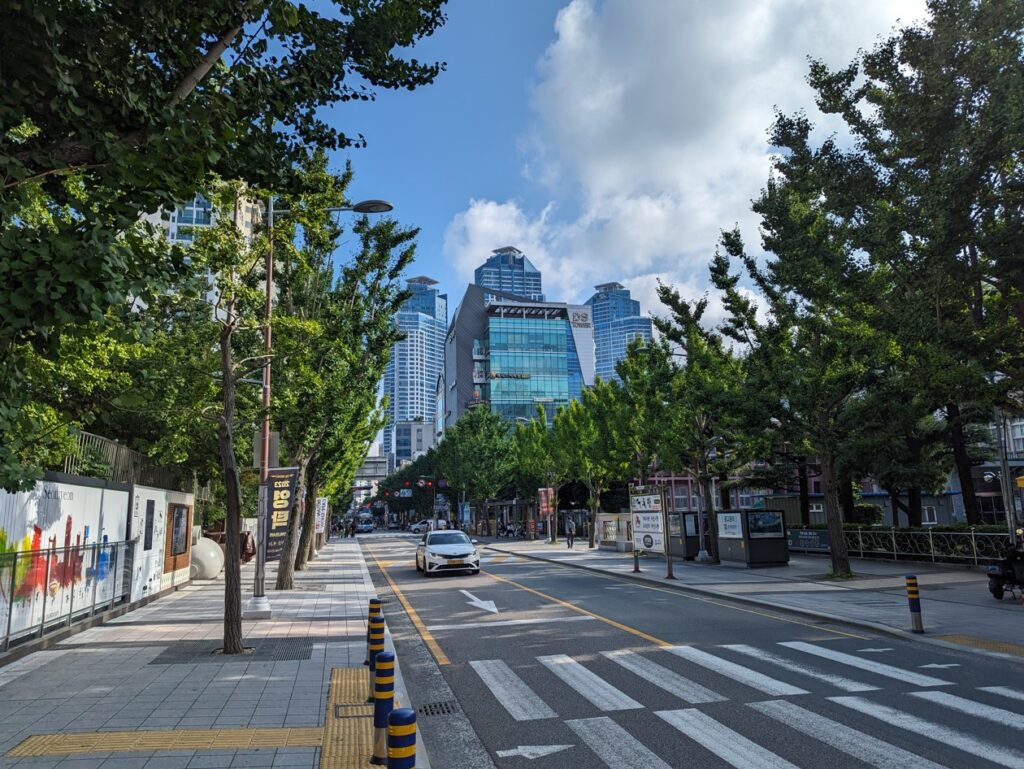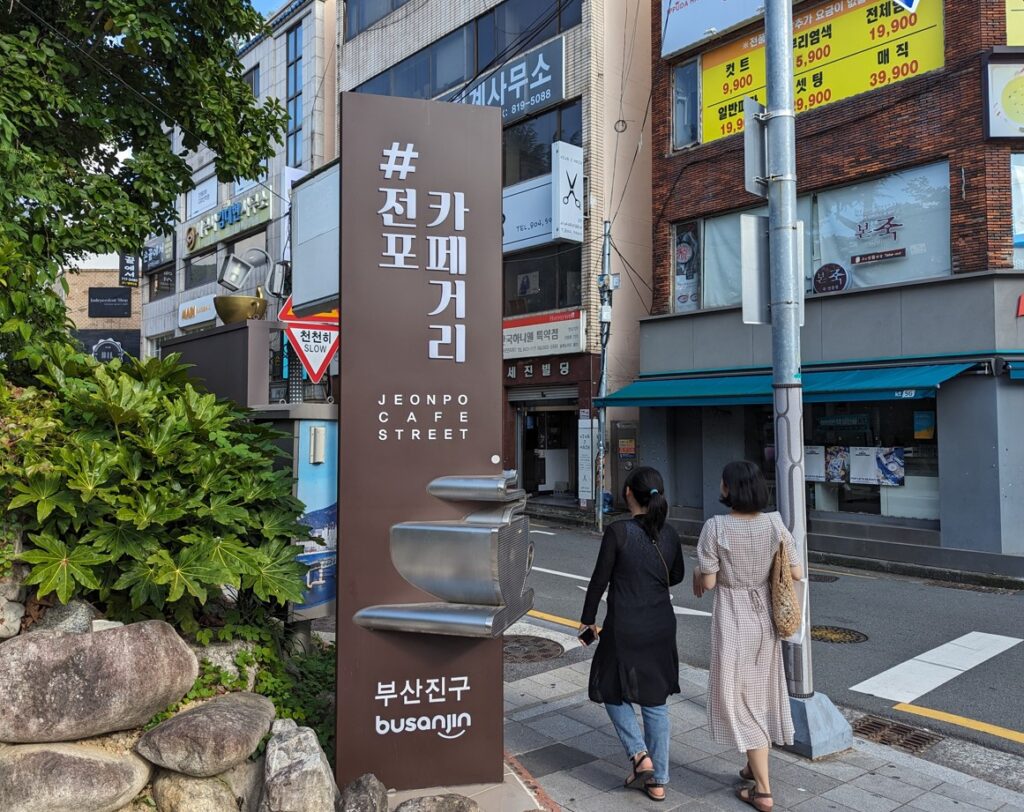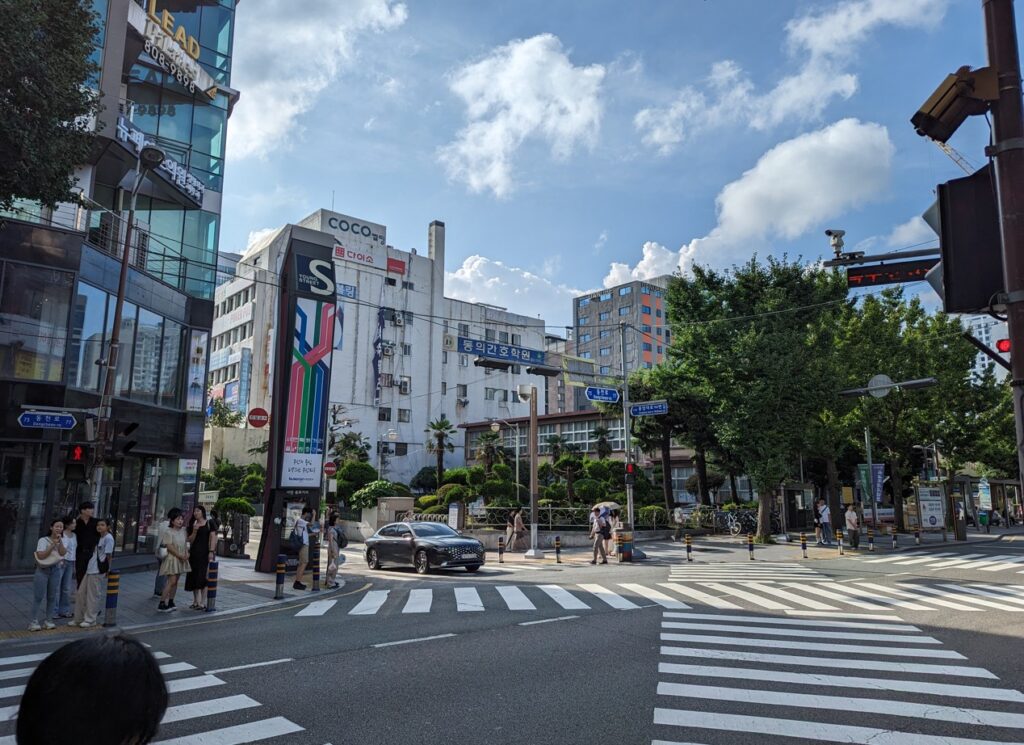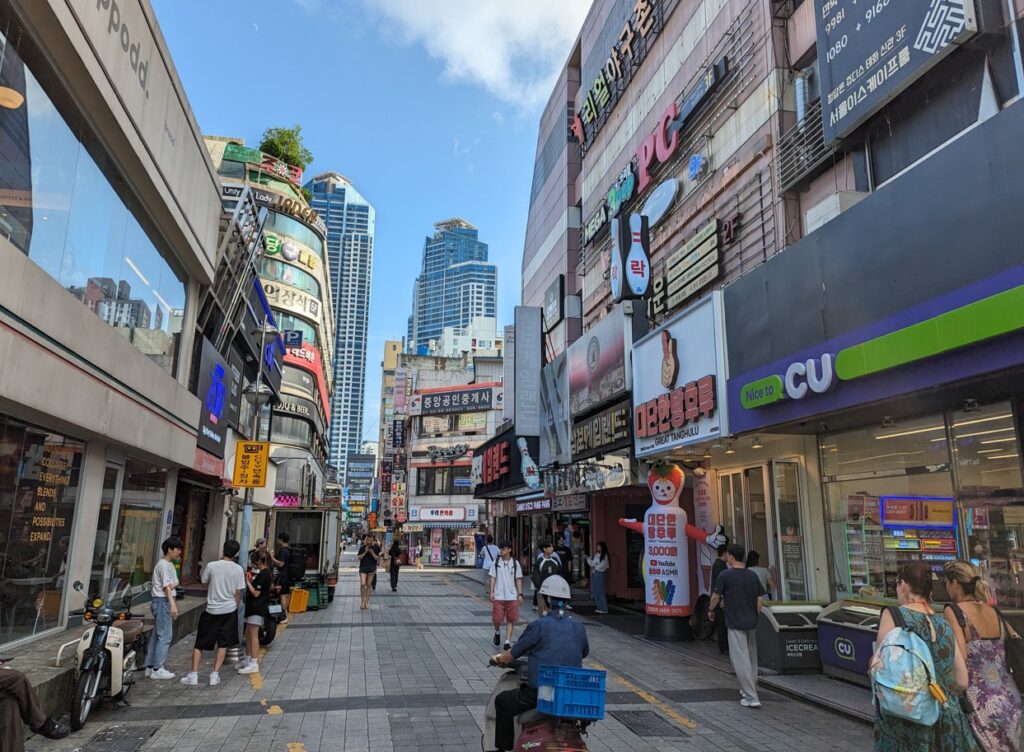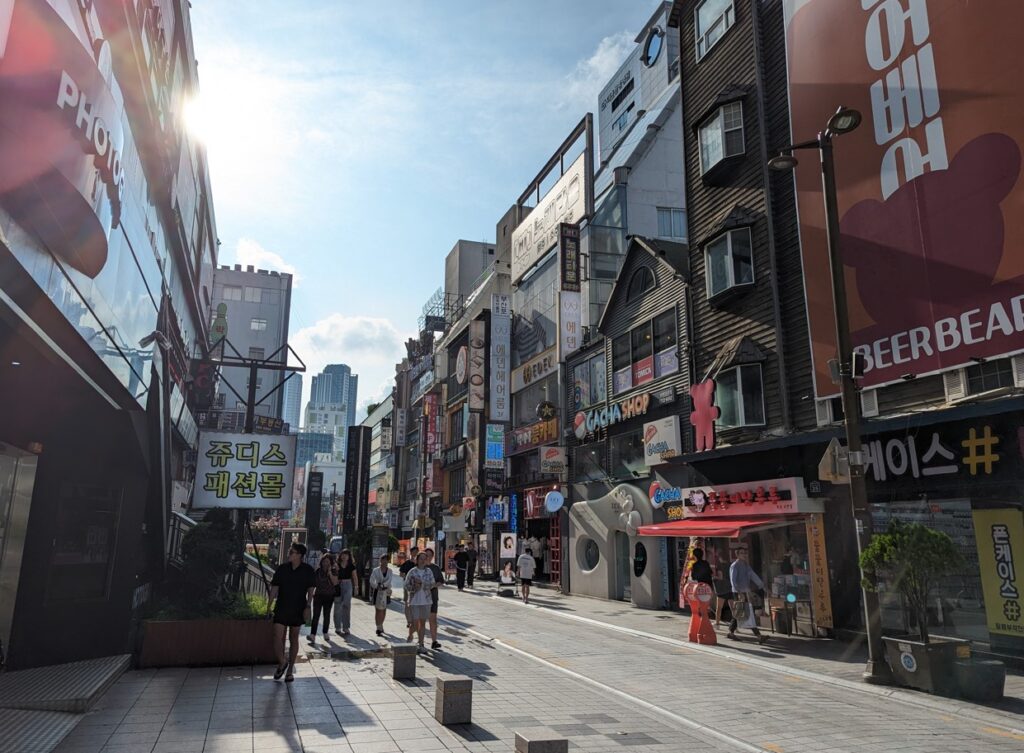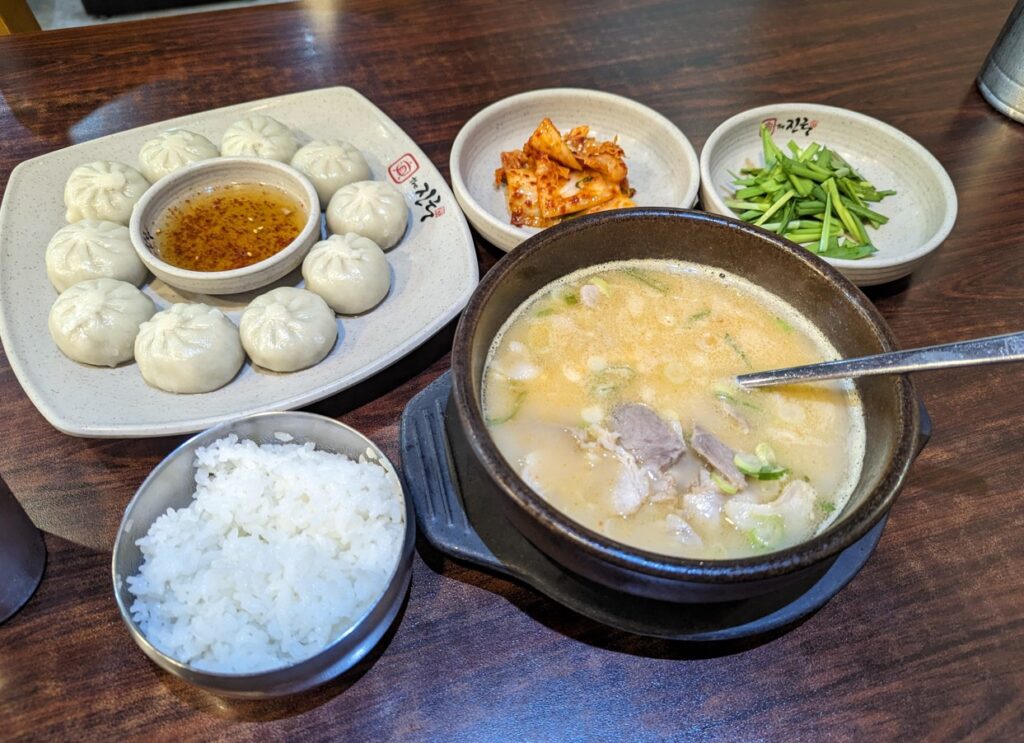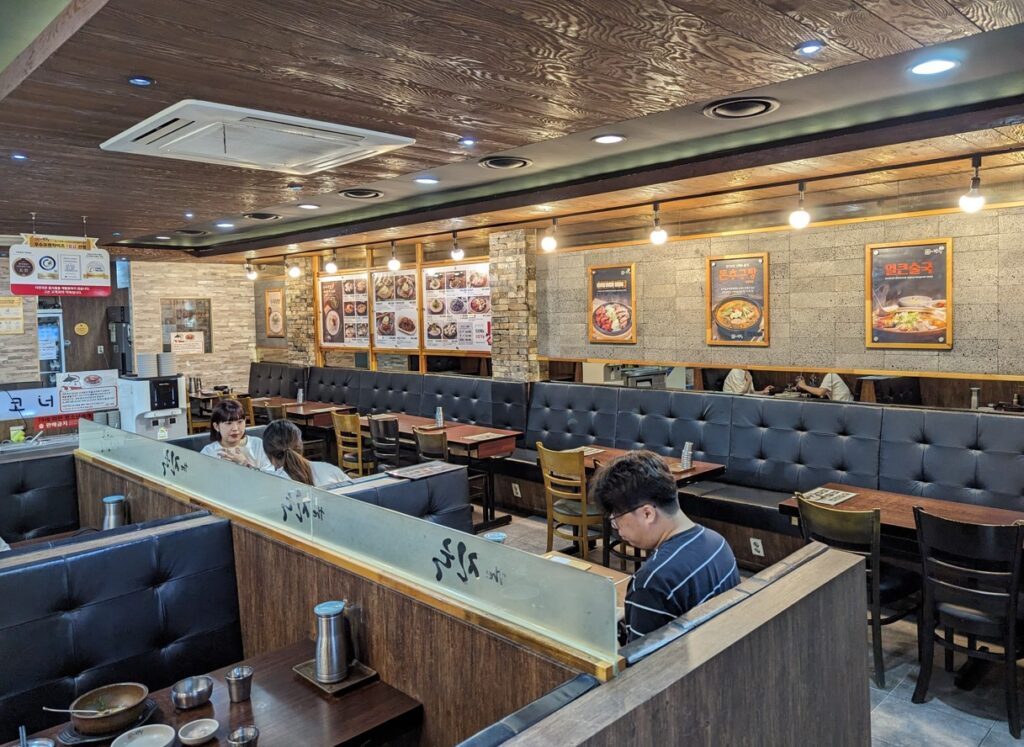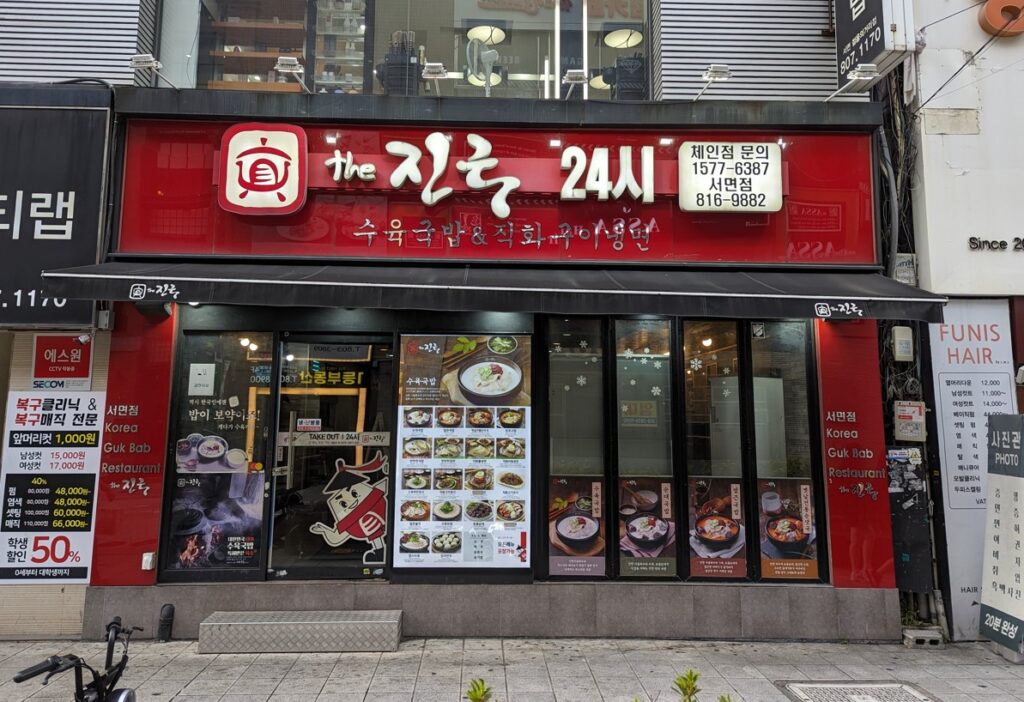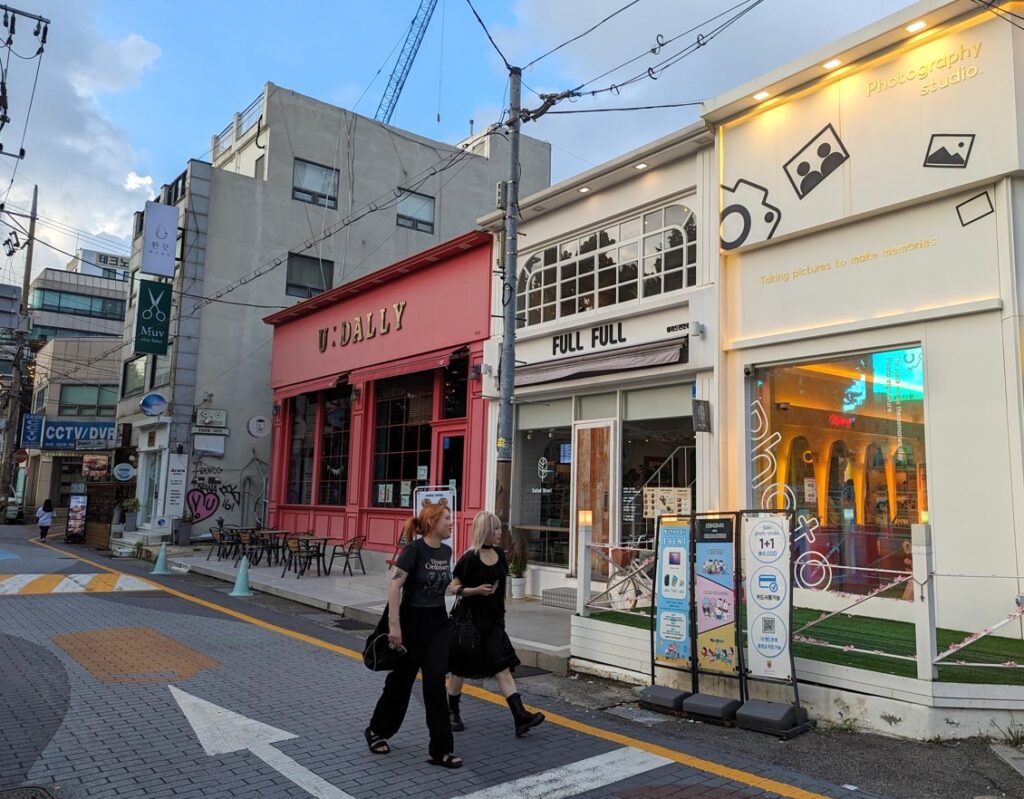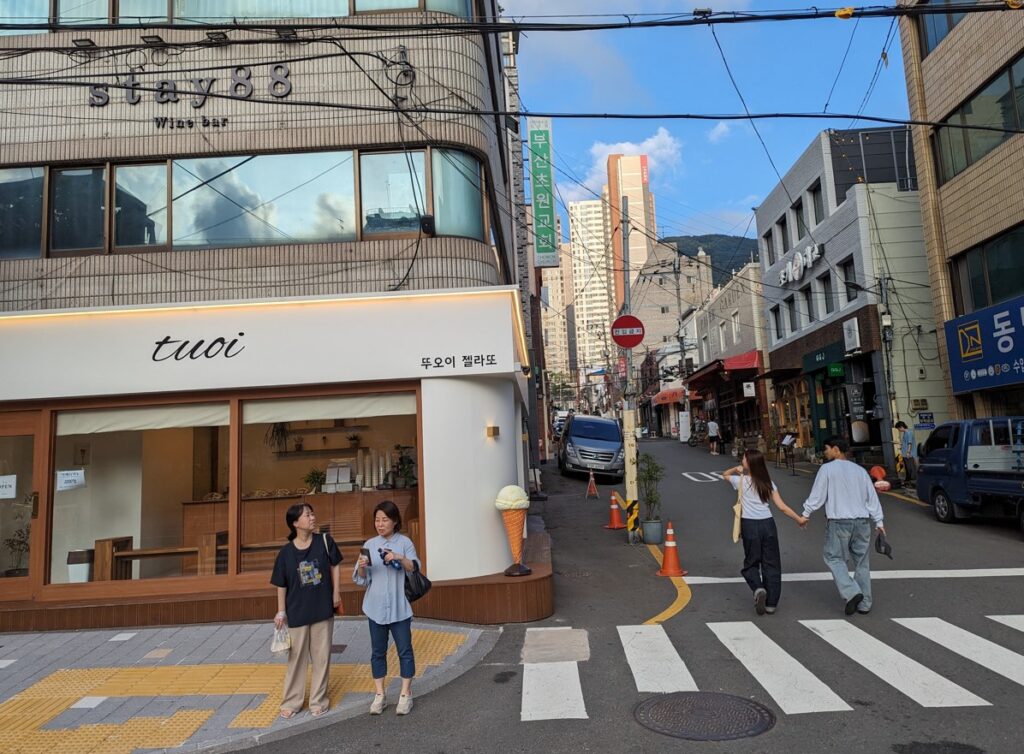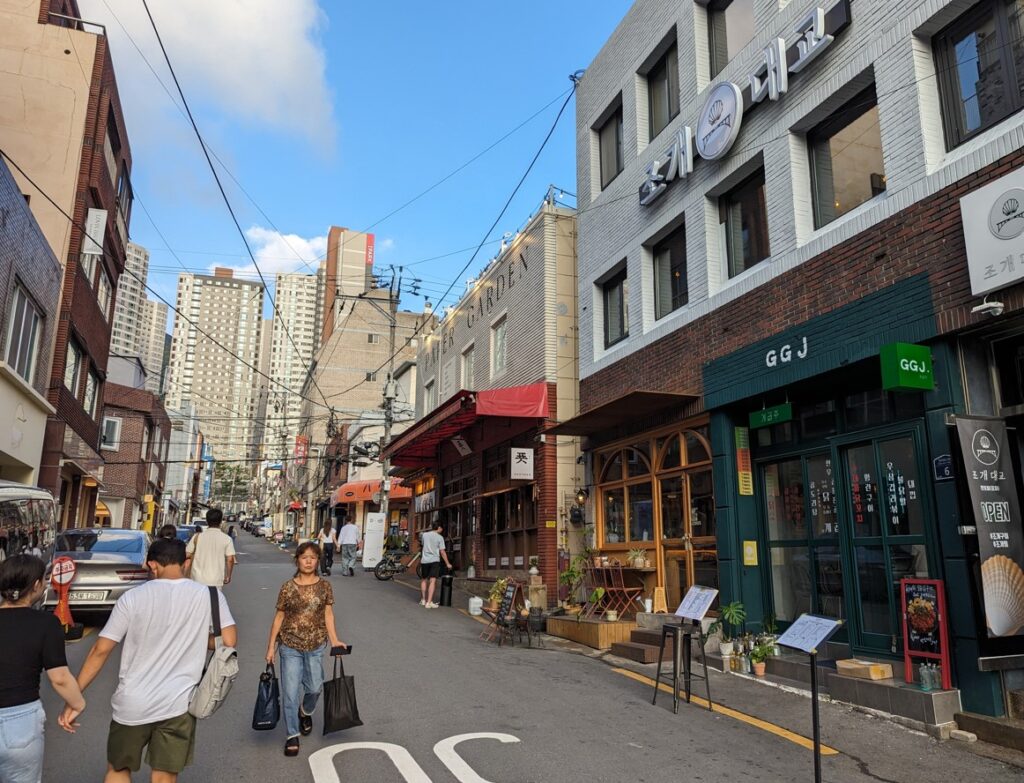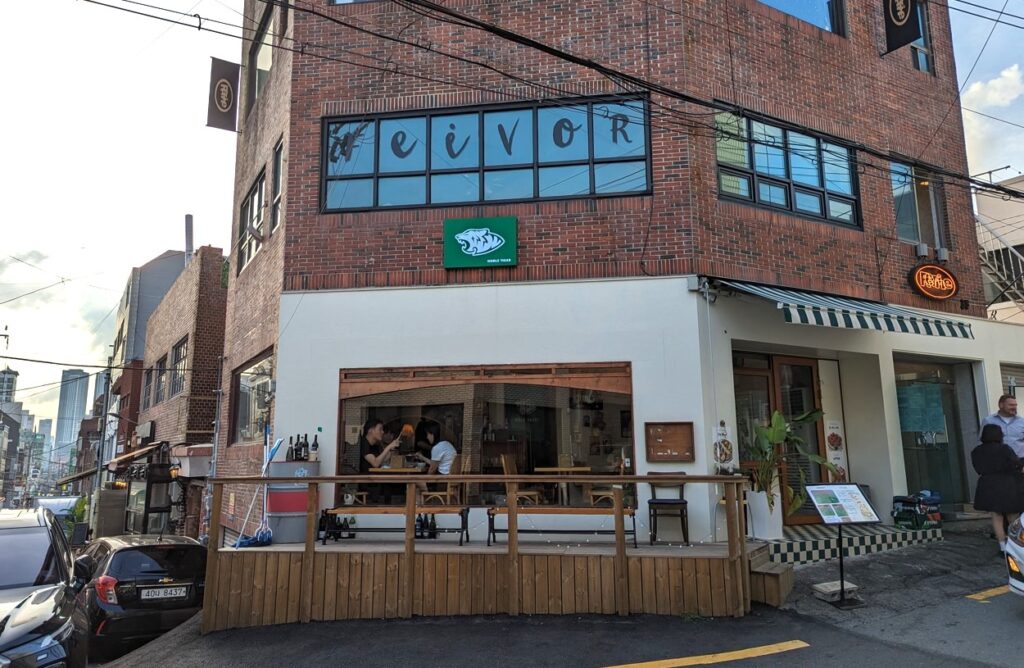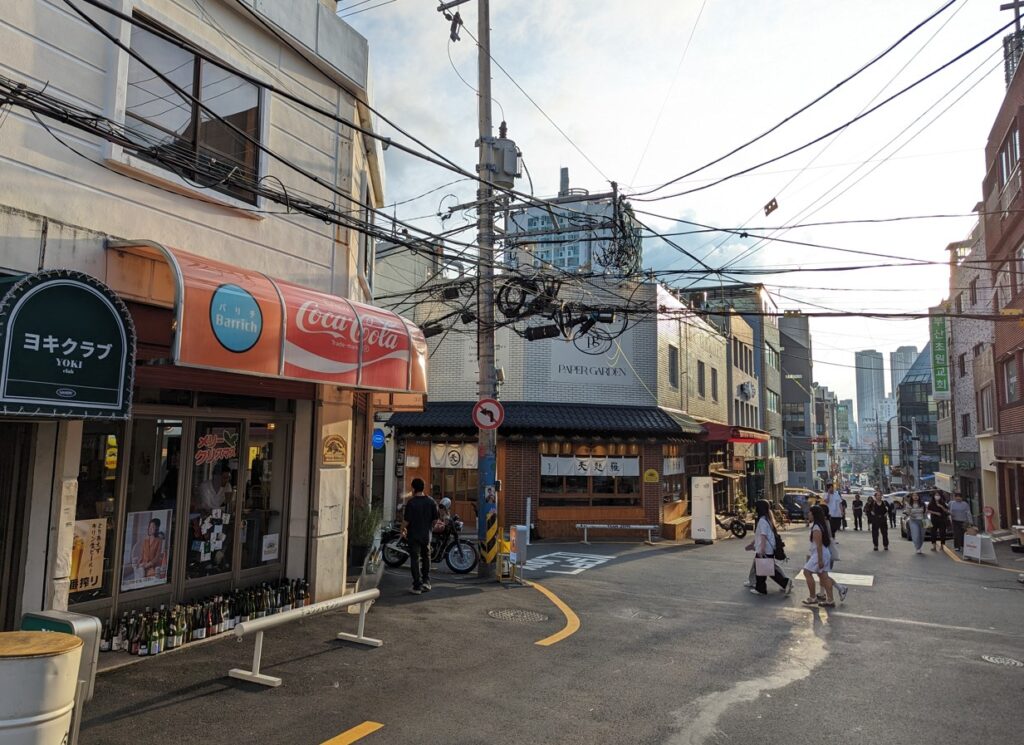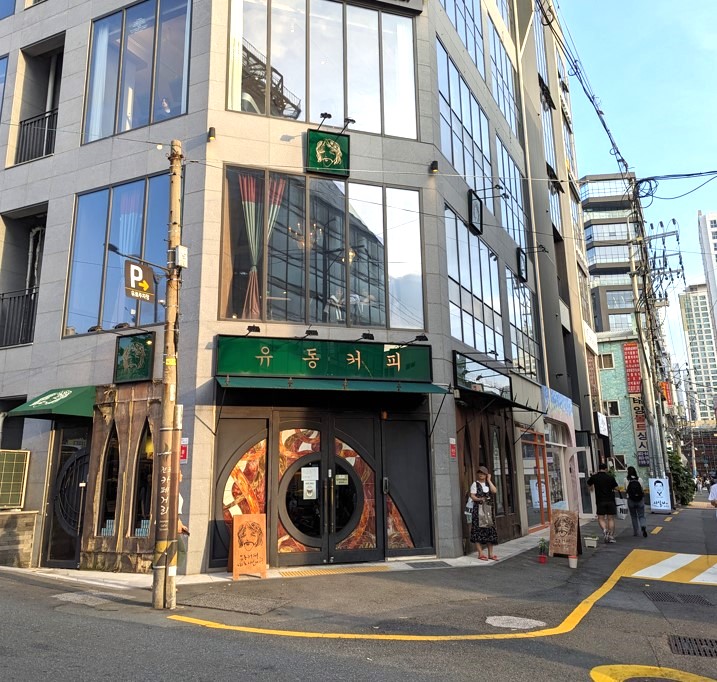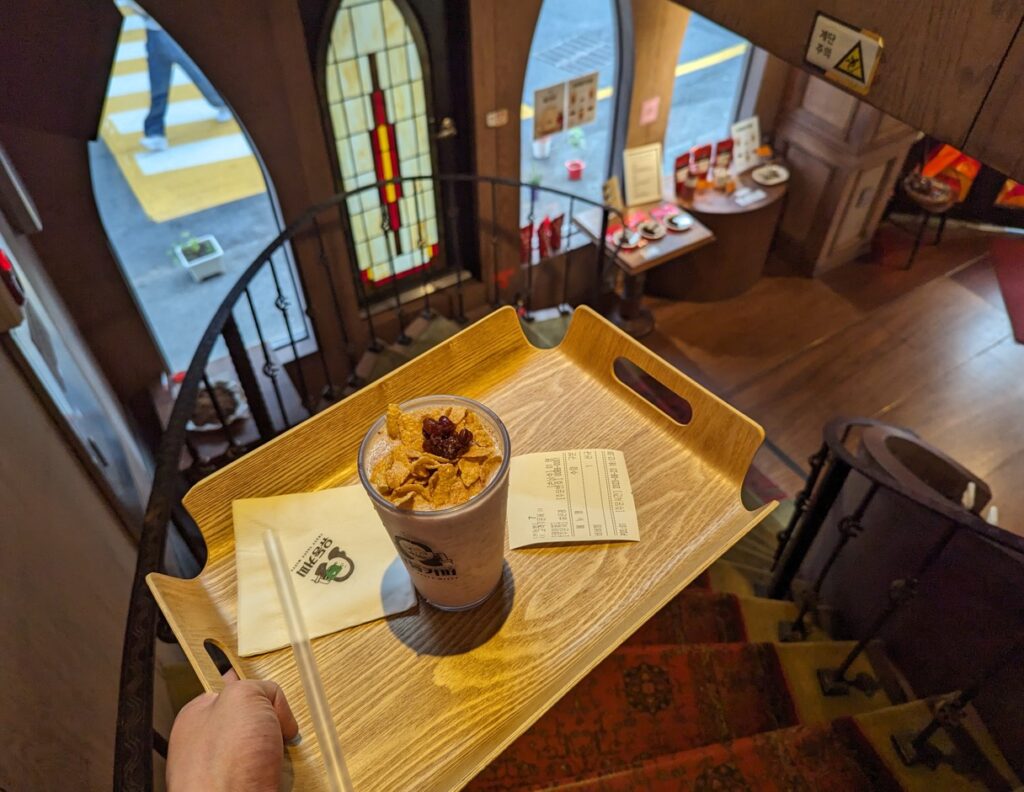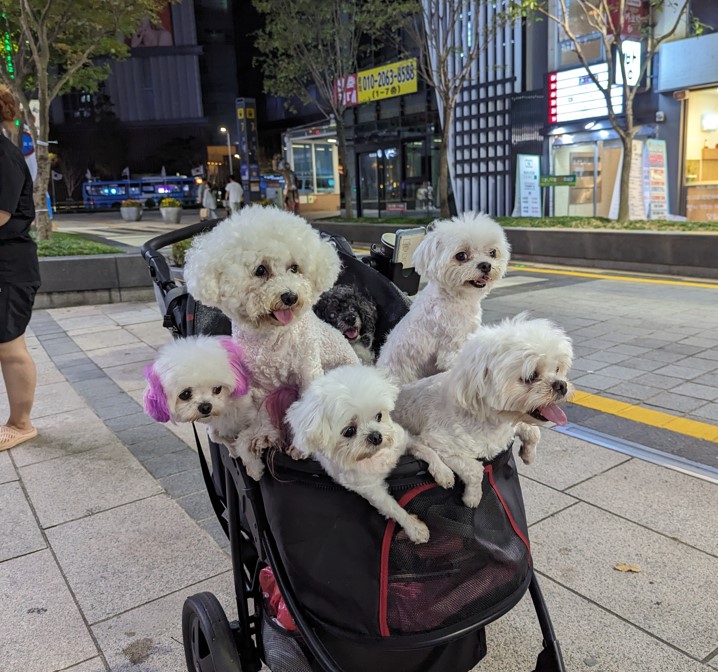
The top floor of the quaint and spacious cafe, Yudong Coffee in Jeonpo.
Becoming a digital nomad and wanting to work from a cafe necessitates that it meets several key criteria, in my view. I’ll elaborate on this later on in this post. Today, in search of that cafe, I walked through a little of Seomyeon and Jeonpo-dong. Getting there is just as important as enjoying the destination.

Garry Ho
Using the Tmoney card on Busan's metro, or subway, system
Getting from one place to another via public transport isn’t difficult in South Korea’s second largest city (by population). The metro map consists of 6 lines, covering a network of 158 stations.
For travel in Busan, whether it be via bus or metro, you can use the Tmoney POP card. I bought it on my 3rd day here and after nearly 3 weeks of regular public transport usage (and a fast food meal), the balance is still not empty. You can buy it and set it up easily from any convenience store (you’ll see a brand called GS25 a lot around the city).
To get to the famous Jeonpo Cafe District, an option is to alight at Seomyeon subway station. You’ll need to walk a few blocks, but it’s worth seeing Busan’s busiest area during the day before you reach neighbouring Jeonpo-dong. Before the buzzing music and general thrum of the night, it’s peaceful to stroll through.
For lunch, I visited The JinCook, a stone’s throw away from Tous les Jours. This felt like a stable, reliable restaurant and I was glad to have my expectations confirmed with a tidy meal of dumplings and hearty pork broth. There’s a kimchi station where you can self-serve.
A theory of why Korean people use metal tableware (e.g. chopsticks and spoons) is that in ancient times, the royalty used it as a means of protection. Their silver chopsticks would change colour if it came into contact with a poisonous substance.
The JinCook for lunch before visiting Jeonpo Cafe Street.
Jeonpo-dong features many cafes and Japanese restaurants
I walked up from Seomyeon into the fashionable Jeonpo Cafe District. It’s a youthful area where couples like to go on dates and foodies like to feed their cameras.
Jeonpo Cafe District was previously more of an industrial and residential area. Over time, buildings were transformed into today’s collection of small businesses, many of which are artisan and aesthetic.
I had spent the past few days working away in the same environment of my Airbnb and felt that life was becoming too monotonous. Walking around this elevated neighbourhood was a breath of fresh air, even as the clock ticked and urged the need for my discovery of a suitable remote-work cafe.
An interesting fact is that a line of Ginkgo trees separate Seomyeon from the Jeonpo-dong neighbourhood. These trees are some of the oldest in the world, dating back to 270 million years ago. You’ll see them on Dongcheon Ginkgo Tree Street.
From trying countless cafes, I’ve learned that finding the perfect one for a solid few hours of work isn’t easy. Aside from the obvious necessities of decent seating and air-conditioning, there are the factors of: power socket accessibility, table space, wi-fi strength (many venues in Busan will share their own wi-fi networks), conversation volume (and hopefully no one is watching the phone without earphones), and seat height (so you don’t find yourself leaning too far forward to read your screen).
Yudong Coffee (Google Maps link here) would have been an 8.5/10 if it wasn’t for the inexplicably loud speaker on the top floor playing albeit rather catchy tunes.
Discover more


Restaurants to visit in Koreatown Los Angeles
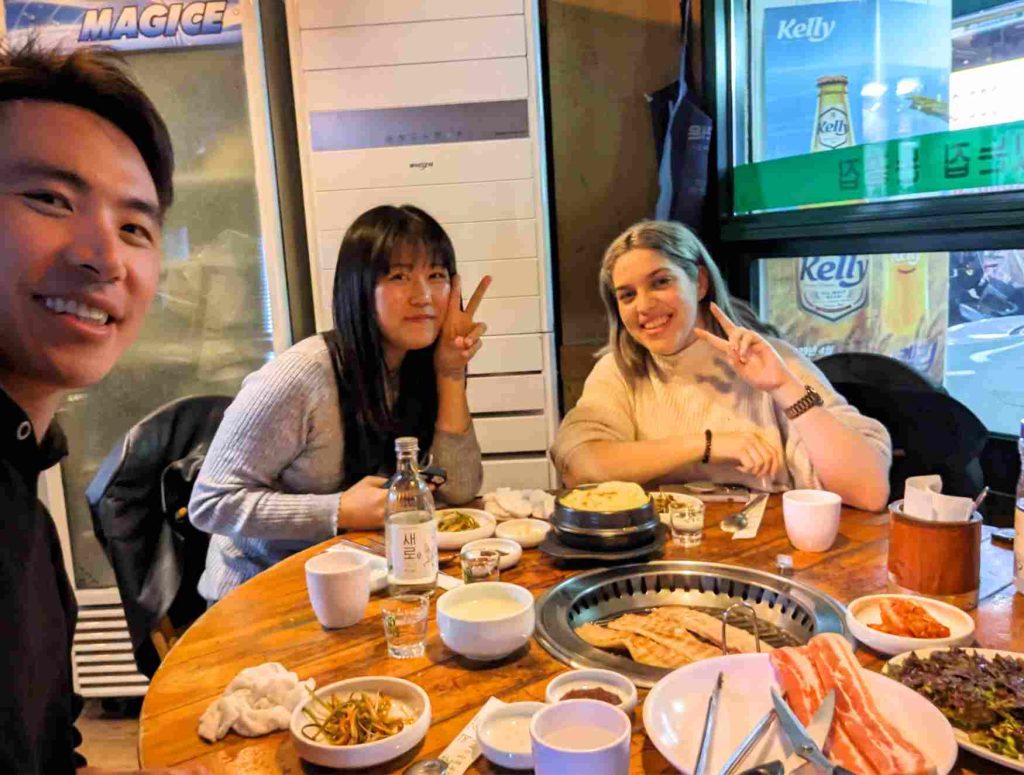
Casual local restaurants around Gangnam Seoul
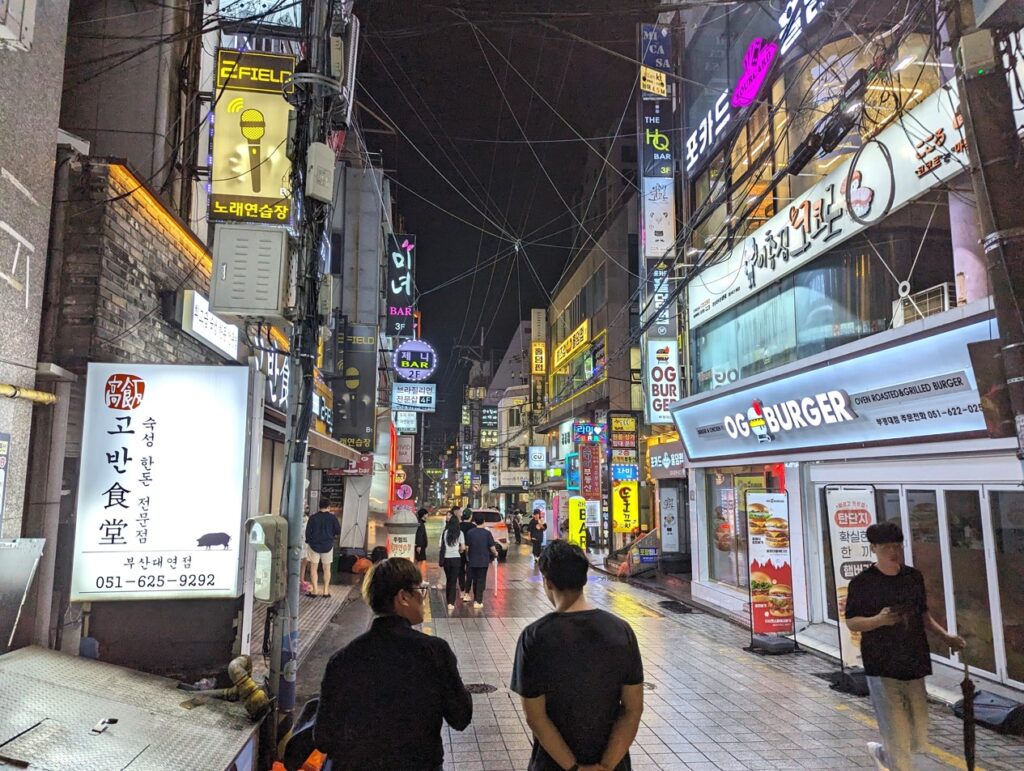
Nightlife in the Kyungsung university area of Nam-gu, Busan
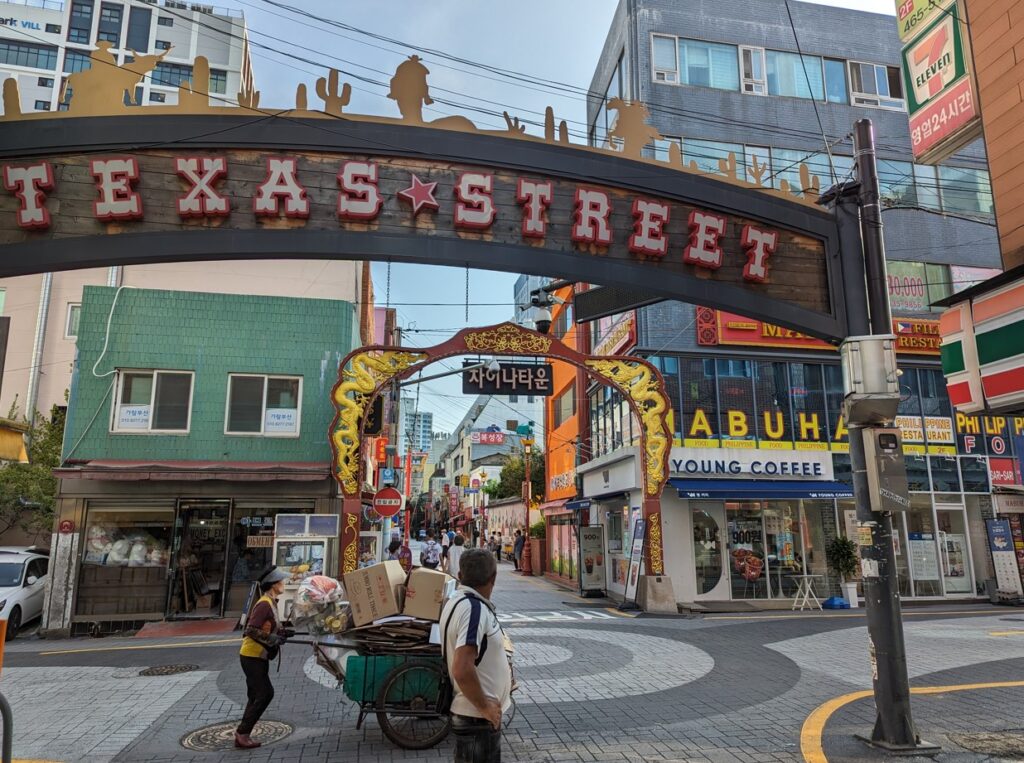
Things to do around Busan Train Station
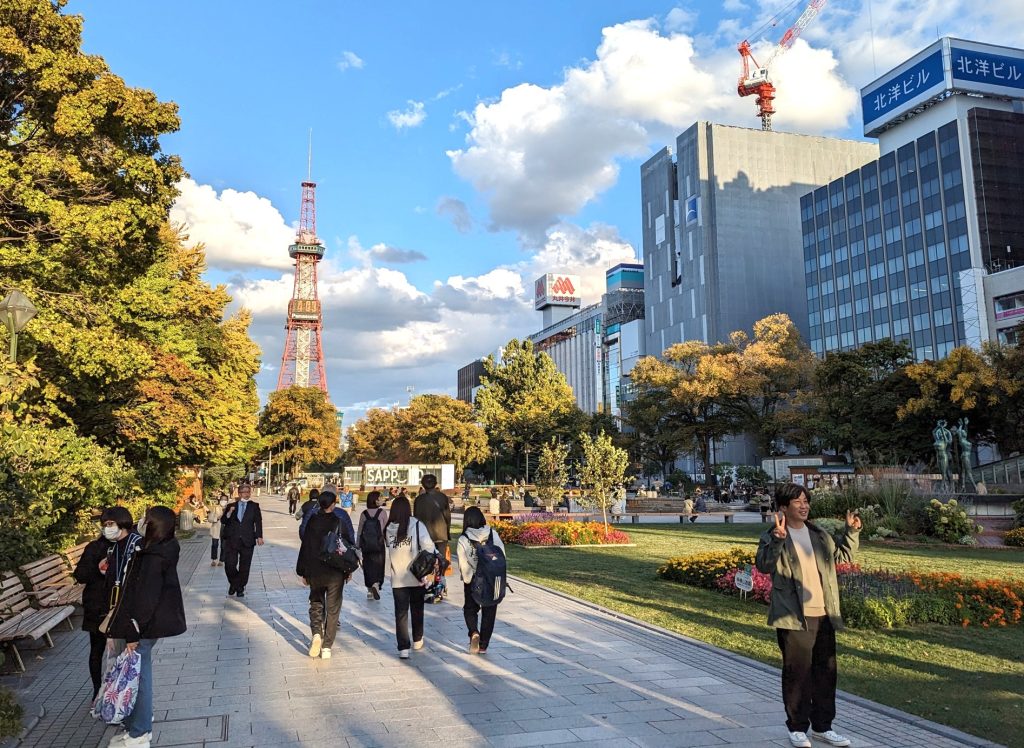
Visiting Nijo Market, Hokkaido University and Sapporo Factory
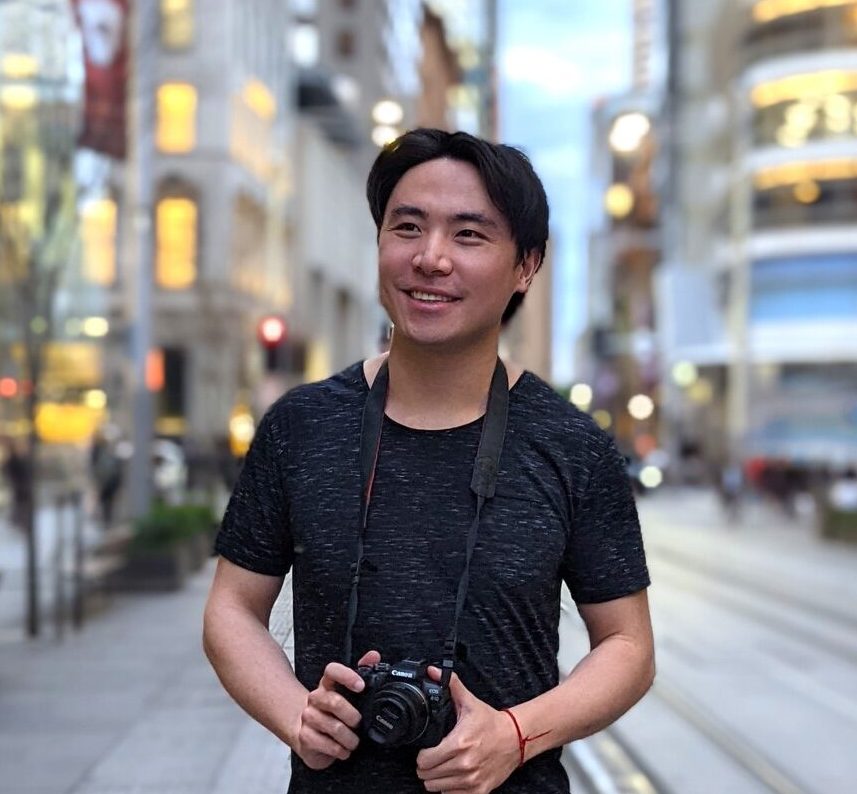
It takes just a minute 🙏
My name is Garry Ho, I’m the founder.
If you have enjoyed our content and found it helpful, please consider supporting us.
All major cards are accepted.

